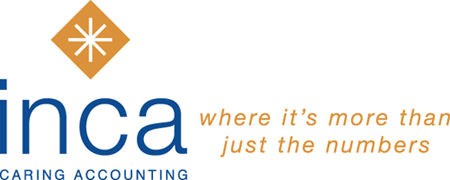As we gear up for the start of the new tax year in April, business owners need to be prepared for a series of changes to the tax system. Dividend Tax, Capital Gains Tax and Class 4 National Insurance are all affected, and there are new requirements for self-employed individuals regarding filing.
These changes have the potential to significantly impact your financial planning, so being informed and prepared is essential. In this blog, we’re going to look at each area that’s changing, consider how you may be affected and what you should do to mitigate any negative impact.

1. Dividend Tax: Personal tax-free allowance to reduce
What’s changing?
Prior to April 2016, the amount of dividend income an individual could receive without having to pay any tax – irrespective of any other income they might receive – was £5,000. Since 2016 however, the government has been gradually reducing the tax-free dividend allowance.
Currently (for the tax year 2023-24), the allowance stands at £1,000, but this is due to reduce to just £500 per person per annum from April 2024.
How might this change impact you & what should you do?
If you operate your business as a limited company, use dividends to remunerate yourself and plan to pay yourself more than £500 in the tax year 2024-25, you should review your current dividend payment strategy and look at ways to mitigate your tax liability on dividend income. You may want to review how the shareholding of your business is structured and make adjustments to your strategy to ensure you’re maximising your tax efficiency.
Another implication of the change is that individuals who may not previously have had to file a tax return may find themselves falling within the Self Assessment regime. The reduction to the tax-free allowance will mean that a person who previously paid their tax through PAYE will have to complete a Self Assessment tax return if they receive more than £500 in dividend payments after April 2024.
2. Capital Gains Tax: Annual exempt amount to reduce
What’s changing?
Another tax-free allowance that’s been reducing in recent years is the Capital Gains Tax (CGT) annual exempt amount (AEA). Currently £6,000 – having been reduced from £12,300 in 2022-23, AEA is due to reduce again to £3,000 per person, per annum from April 2024. It’s expected to remain at this level in future years.
How might this change impact you & what should you do?
If you have plans to sell a second home or other valuable assets after April 2024, you’re likely to have to pay more CGT than you would have if you’d made your disposal before this date.
To prepare for the upcoming change, you should urgently review your capital assets, assessing any potential capital gains that may arise from their disposal. You’ll then need to carefully consider the timing of asset sales or transfers to optimise your tax liabilities.
3. National Insurance: Class 4 NI to reduce by 1%
What’s changing?
From April 2024, two changes to National Insurance will affect you if you’re self-employed. Firstly, Class 2 contributions – currently a flat rate of £3.45 a week will be abolished from this date. Secondly, you will benefit from a 1% saving on the Class 4 National Insurance rate which will fall from 9% to 8% on any profits you make over £12,570.
How might this change impact you & what should you do?
The imminent change to Class 4 National Insurance means you’ll pay a higher rate on any profit your business makes before April 2024 than you will after this date. For this reason, you might want to consider reducing your profit for the current tax year by bringing forward any expenditure you may have planned for the tax year 2024-25.
There is very little time left in which to take action, and you should keep in mind that certain types of expenditure will not qualify. But if bringing expenditure forward is practical and legitimate, you may be able to save yourself £1 for every £10 profit over the £12,570 threshold.
4. Self-employment: New rules regarding completing Self Assessment tax returns
What’s changing?
If you’re self-employed or in a trading partnership and your business accounting year end is not aligned with the tax year, i.e., it’s not on or between 31st March and 5th April, new rules mean that you’ll need to change the way you complete your Self Assessment tax return from April 2024. From this date, you need to report the profits you earned during the tax year the return relates to (6th April to the following 5th April).
How might this change impact you & what should you do?
If your accounting year end doesn’t fall between 31st March and 5th April, you’ll need to report your profit using figures from two sets of accounts. To arrive at the figure you need to report on your Self Assessment return, you’ll have to add your profit from 6th April up to your business account year end date together with your profit from the start of your new business year to 5th April the following year
The upcoming changes to the tax system in April 2024 present both challenges and opportunities. By staying informed, reviewing your financial arrangements, and seeking professional advice where necessary, you can navigate these changes effectively and ensure your business remains compliant and financially resilient in the new tax year.
Let Inca Help You Get Ready for Tax Changes!
Proactive planning and staying ahead of the curve are key to successfully managing tax changes and optimising your business’s financial performance in an evolving tax system.
If you’d like help understanding how any of these changes might affect your business or personal finances, or if you need advice on any aspect of tax, call one of our advisers for an initial chat on 01235 868888 or email us at [email protected]




